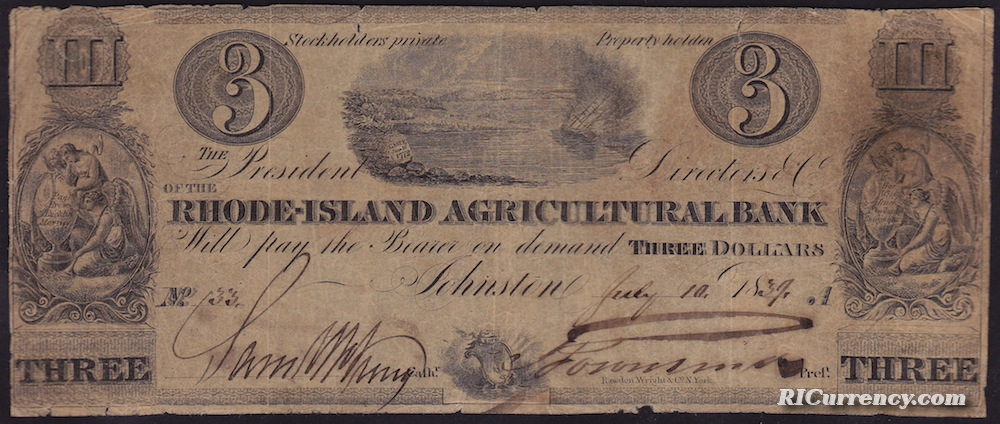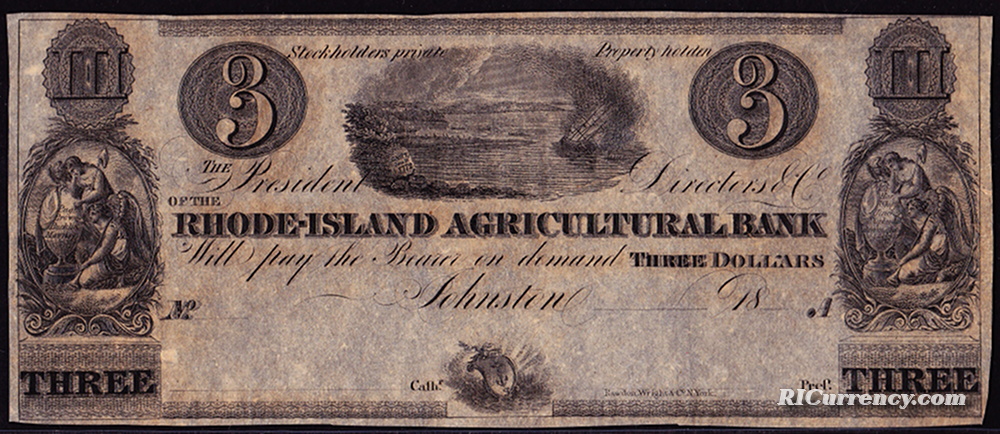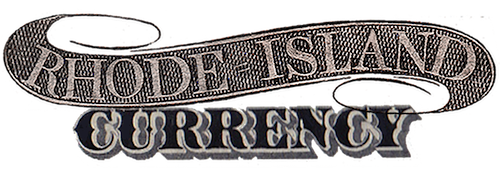R.I. Agricultural Bank, Johnston
This bank was chartered in 1823 and located in the Olneyville section of Johnston. Solomon Townsend was chosen as president, and Samuel Ward King was cashier. King had started his career as a country doctor (also serving as a surgeon in the War of 1812) and finding the life not as lucrative as he had hoped, he took the position at the bank. Along with his work at the Agricultural Bank, King would go on to be a town clerk, state senator and also the 15th Governor of Rhode Island (1839-1843).
The end of the Agricultural Bank’s life two decades later was noted as follows:
“Failed in October, 1843, with a supposed circulation of only $4,960. By January, 1845, the Commissioners who were in charge of the affairs had redeemed $8,394.” — Sound Currency, December 1901, Vol VIII, No. 4.
Rufus Smith was appointed receiver of the bank in January, 1844 and filed his report with the state in January of 1845. Disagreements between the receiver and the bank’s creditors over the personal liability of stockholders, and to what extent bills that bore the inscription, “stockholders’ private property holden” made them responsible, ended up in a case before the Rhode Island Supreme Court.
As Roger Durand points out in Obsolete Notes and Scrip of Rhode Island and the Providence Plantations, the $3 banknote of the R.I. Agricultural Bank features a vignette seen nowhere else on American currency. It’s the burning of the Gaspee on June 10, 1772, which took place on a sandbar in Narragansett Bay. This act is considered by many historians as the opening volley of America’s Revolutionary War.
The first three notes below were signed by Samuel Ward King (left) and Solomon Townsend (right) in 1839.







